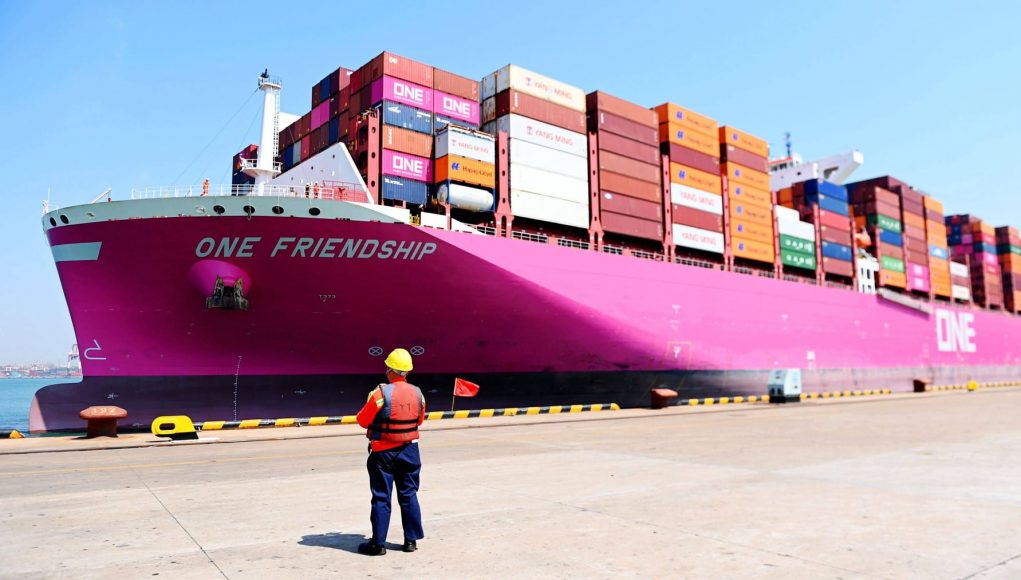Many European companies' view of China is clouded. They blame not only the weak economic development, but also a number of other problems.
European companies assess their growth opportunities in China as poorly as never before. As the annual business climate survey conducted by the EU Chamber of Commerce in Beijing shows, 23 percent of the companies surveyed are pessimistic about their growth prospects in the next two years – more than ever before.
In the previous year's survey, only 9 percent were pessimistic. The number of companies that assessed their growth prospects as positive, however, fell from 55 percent in the previous year to 32 percent, a record low.
Weak domestic demand, high debt
The past year was marked by “growing uncertainty” for European companies in the People’s Republic, according to the EU Chamber. The opening of China after the pandemic initially triggered a “feeling of optimism”. However, “deep structural problems” such as weak domestic demand, high local government debt and ongoing challenges in the real estate sector quickly clouded the outlook. The trust of companies has also been further weakened by contradictory messages from the Chinese government.
The companies cited the economic slowdown in China as the current biggest challenges for their business, followed by the general weak global economy. The conflict between the USA and China and other geopolitical tensions were also cited as important factors. Increasingly tough competition with Chinese companies is also causing problems for EU companies.
Economic slowdown biggest challenge
While economic challenges intensified, other business obstacles in China such as regulatory requirements and unpredictable legislation remained high. Only 16 percent of those surveyed expected the regulatory hurdles to be reduced – this is also the lowest value ever.
The negative situation also has a noticeable impact on companies' investment decisions. The proportion of respondents who still rate China as a top destination for current and future investments is therefore lower than ever before at 15 and 12 percent of respondents.
“Companies are shifting investments”
“Companies continue to shift investments originally planned for China to alternative markets that are perceived as more predictable, reliable and transparent,” the Chamber report said. At the same time, the proportion of respondents planning to expand their current China activities in the coming year fell to a record low of 42 percent from 48 percent in the previous year. According to the chamber, many companies are also restricting the reinvestment of their profits in China.
A growing problem in China is the high level of overcapacity in many sectors of the economy. Overall, 36 percent of respondents observed excess capacity in their respective industries. Another ten percent expected this in the near future. The highest proportion of respondents (69 percent) reported excess capacity in the construction industry. The automotive industry recorded the second highest share at 62 percent.
Too little demand
Three-fifths of those surveyed who reported overcapacity in their industry cited excessive investment in domestic production as the main cause of the problems. But insufficient demand on both the Chinese market and the global market were also cited as reasons.
Only on Monday, EU Commission President Ursula von der Leyen made it clear before a meeting with Chinese state and party leader Xi Jinping in Paris that the EU would no longer tolerate China's current subsidies and trade practices.
Due to weak domestic demand, China is currently producing more than it sells with high subsidies, argued the top politician. The EU Commission had already announced last year that it would examine possible punitive tariffs on electric cars from China.
































